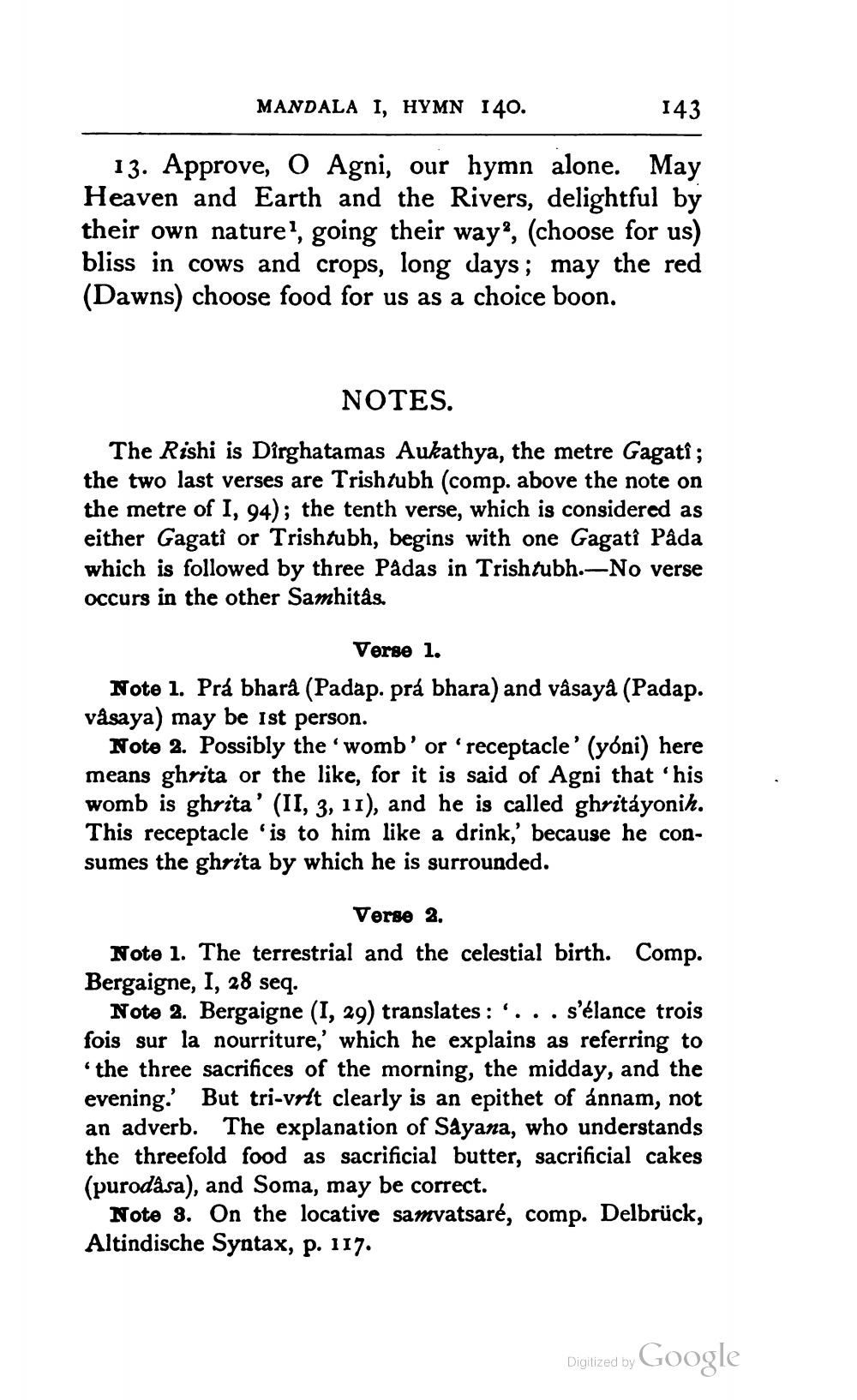________________
MANDALA I, HYMN 140.
143
13. Approve, O Agni, our hymn alone. May Heaven and Earth and the Rivers, delightful by their own nature', going their way?, (choose for us) bliss in cows and crops, long days; may the red (Dawns) choose food for us as a choice boon.
NOTES.
The Rishi is Dirghatamas Aukathya, the metre Gagati ; the two last verses are Trishtubh (comp. above the note on the metre of I, 94); the tenth verse, which is considered as either Gagatî or Trishtubh, begins with one Gagati Pada which is followed by three Pådas in Trishtubh.—No verse occurs in the other Samhitas.
Verse 1. Note 1. Prá bhara (Padap. prá bhara) and vâsaya (Padap. vasaya) may be ist person.
Note 2. Possibly the 'womb' or 'receptacle' (yoni) here means ghrita or the like, for it is said of Agni that his womb is ghrita' (II, 3, 11), and he is called ghritayonih. This receptacle 'is to him like a drink,' because he consumes the ghrita by which he is surrounded.
Verse 2. Note 1. The terrestrial and the celestial birth. Comp. Bergaigne, I, 28 seq.
Note 2. Bergaigne (I, 29) translates : '... s'élance trois fois sur la nourriture,' which he explains as referring to
the three sacrifices of the morning, the midday, and the evening. But tri-vrlt clearly is an epithet of ánnam, not an adverb. The explanation of Sayana, who understands the threefold food as sacrificial butter, sacrificial cakes (purodása), and Soma, may be correct.
Note 3. On the locative samvatsaré, comp. Delbrück, Altindische Syntax, p. 117.
Digitized by Google




